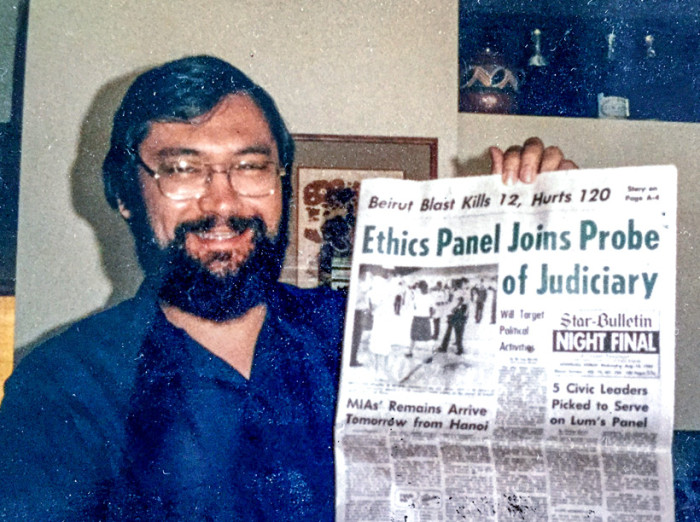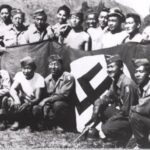For Favors, They Called Fat Boy.
Many of the people born and raised here in Hawaii in the 1920s and 30s, particularly Japanese men, had nicknames they acquired as a kid and kept throughout their lives. Even when some of them became prominent in politics, their boyhood nicknames stayed with them. There was “Shadow” Hirai, for instance, who worked at the Legislature for years. I never knew what his real first name was … no one ever used it.
Tom “Fat Boy” Okuda ran the Traffic Violations Bureau in Honolulu and was a legendary go-to guy in several Democratic state administrations for politicians needing a favor—a dozen people to stuff envelopes for a political campaign, perhaps. You were a real political insider back then if Fat Boy Okuda fixed a traffic ticket for you. (In the local vernacular, you would say he “disappeared” it.) Fat Boy also worked as a lobbyist for the State Judiciary and, through a network of personal friends working in government jobs at all levels, he became the person to call if you needed almost any favor—a pair of choice seats at a University of Hawaii football game, for example.
It was probably sometime in 1963, I think, when I got a traffic ticket I felt was unfair, and one day on my lunch hour, I took it to the Traffic Violations Bureau seeking someone in authority to whom I could complain. That turned out to be Fat Boy Okuda, who was there alone, eating his brown bag lunch when I appeared. He waved me into his little office and listened patiently to my story. When I got to the part about the $20 fine being a heavy hit for someone making $115 a week at the time, he interrupted and said, “How about five bucks? Would that be OK with you?” I was startled, but managed to nod “yes”. Okuda got up, and led me to the counter at the front of the room. There he scribbled something across the bottom of the ticket, signed his name and handed me the carbon copy. He attached my five dollar bill to the original and shoved it into a file folder. Then he wished me a nice day and went back to his lunch.

Stories by investigative reporter Ian Lind, led to the downfall of Tom “Fat Boy” Okuda and an end to the fixing of traffic tickets.
Everyone who was anyone in Honolulu back then knew about Fat Boy, his connections, his favors, and the disappearing traffic tickets. Nobody really cared until Common Cause released a report in which Okuda was prominently mentioned. That got Honolulu’s evening newspaper, the Star-Bulletin, interested and soon the rest of the local media piled on.
All the negative publicity eventually resulted in a trial during which court documents revealed that Okuda had been “disappearing” an average of 70 tickets a month. The verdict was a foregone conclusion: Fat Boy was convicted on a dozen misdemeanor counts of fixing traffic tickets. He paid a small fine, but his government career was over and he retired soon afterwards. Tom “Fat Boy” Okuda died in 1991 at the age of 73.
In an interview with a local reporter following the trial, Okuda scoffed at the notion that he had been a powerful figure. He got things done, Fat Boy said, because “they thought I had power.”
Me, personally? Tom Okuda gave me a small break when I needed one. It was simple act of kindness and understanding and I’ll always appreciate it.


